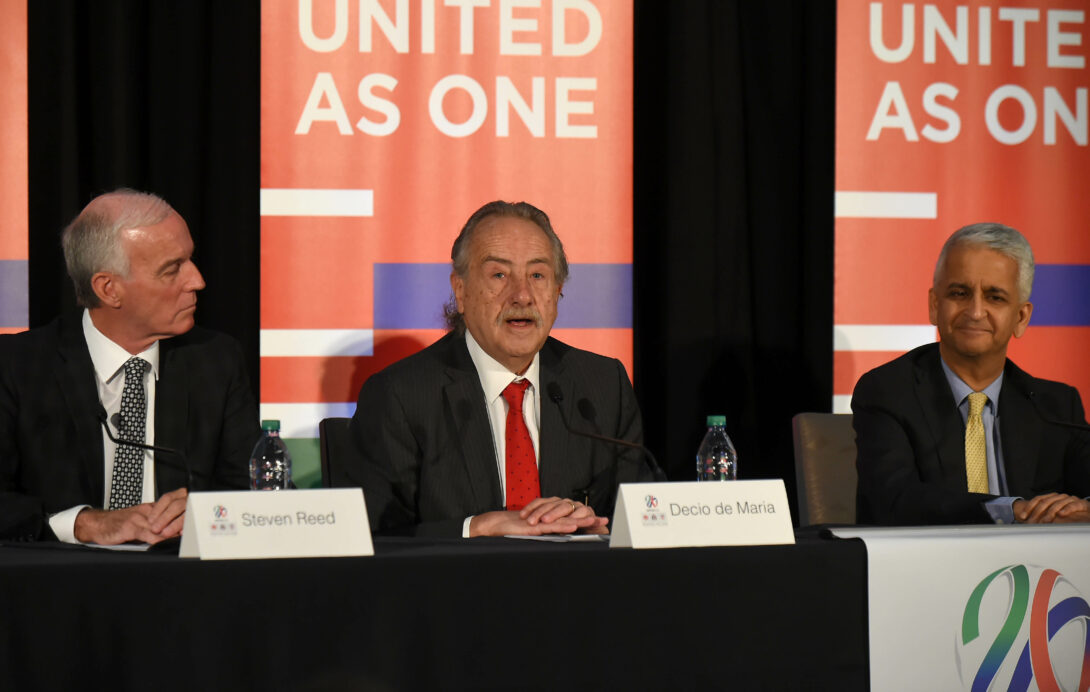TORONTO – There are roughly three months remaining before the unified 2026 World Cup bid is officially submitted by the U.S., Canada and Mexico. Throughout those three months, the bid team will have to dot plenty of I’s and cross a series of T’s, but there are still some big decisions to be made in the years to come.
Speaking at a press conference on Saturday, Sunil Gulati says that the process is targeting a list of as many as “15-18 cities” to host the 46-team tournament. As things stand, the bid committee is keeping options open with as many cities as possible as final decisions won’t need to be made until 2021. That leaves room for potential changes, including new stadiums built within the eight years that separate the bidding decision and the tournament kickoff.
“Our position is we would like more cities rather than fewer,”Gulati told reporters. “The catch is from an economic perspective, when you’re selling out every game, by increasing the number of venues, you increase costs but don’t increase revenue. From the U.S. perspective and certainly from the Canadian perspective, we’re still trying to build the game, take the game to a national level and we’d like to see more cities involved.
“I can’t predict which cities will get picked, but is it natural to think places like Los Angeles or New York have an edge? Of course that’s the case, but after two or three or four big cities, then I think it’s wide open. Then there’s the opportunity to host teams, have training sites and so on and so forth, as was the case in Brazil, South Africa and the U.S.”
The United Bid Committee lowered the list of potential cities to 32 in the fall with 25 being in the U.S. Mexican federation president Decio de Maria and Canadian Soccer Association President Steven Reed both said they have no problems with the allotment of games, which sees Mexican and Canada host 10 matches each.
Morocco provides competition for the bid, which will be decided upon in June in what Gulati says is the shortest bidding process he’s seen. Due to the nature of FIFA rules, Gulati says he is unable to discuss specifics of the Morocco bid.
For the Unified bid, the issue of travel remains a concern, though, given the vast amount of land and cities covered within the bid, although Gulati isn’t worried.
“We’ve hosted it here before,” he said, “and I’m not sure if the distances will be much further than they were even then, even if we have Canada and Mexico because when you have more teams and more venues, its easier to place groups. Imagine a group, for the purposes of discussion, in Seattle and Vancouver that’s following a team for three games. That’s a pretty easy trip, whereas traveling from Manaus to Rio wasn’t quite so straightforward. That’s part of it.
“Transportation has gotten better. We think there’s a way to put the schedule together to minimize that. Clearly if your team is going to play seven games, you’ll have to travel no matter where it is.”


46 teams?